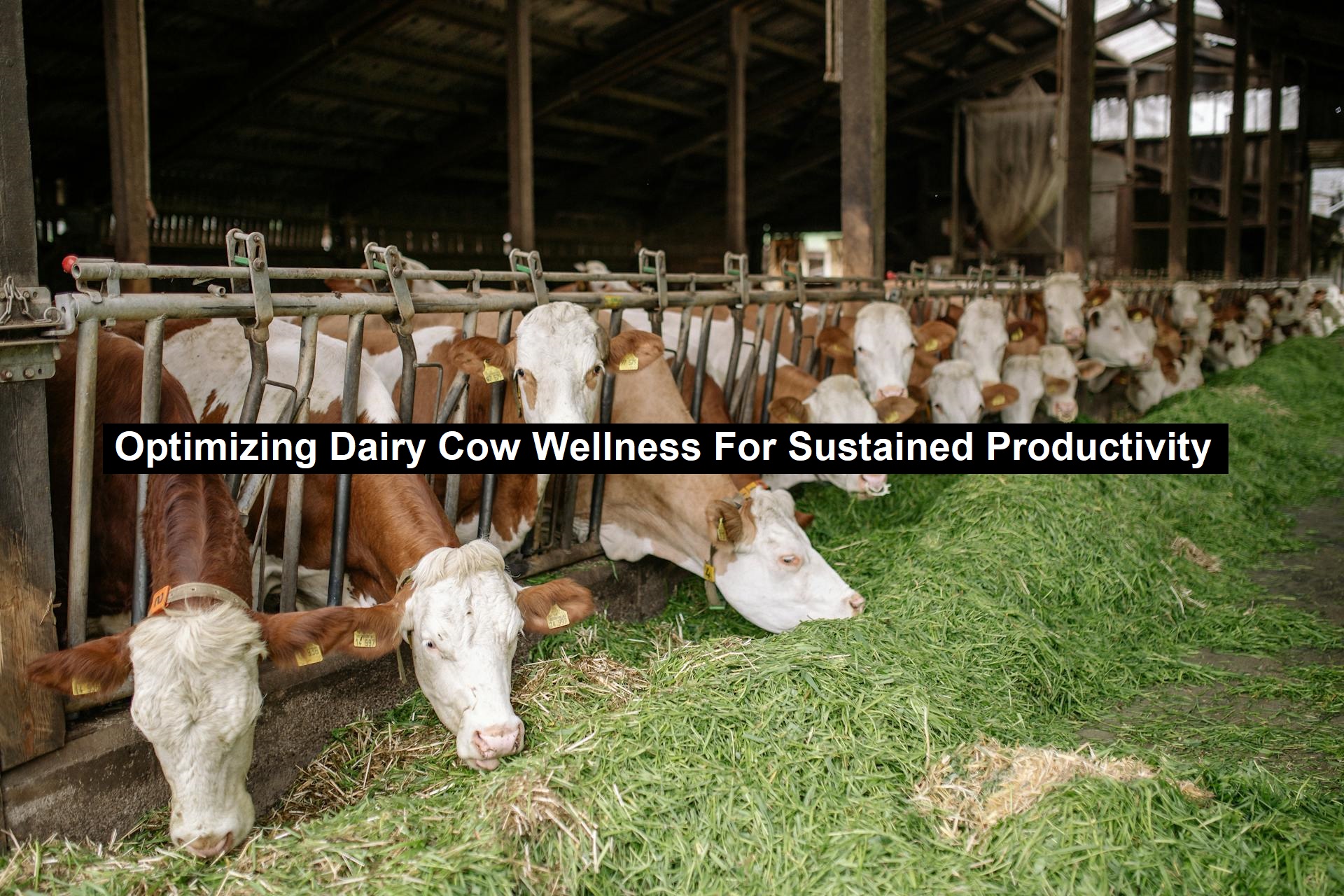Optimizing Dairy Cow Wellness For Sustained Productivity
Dairy farming is demanding, and every cow’s health directly impacts both milk production and the farm’s success. After all, healthy cows are the foundation of a productive and profitable operation. To keep them thriving, farmers need a well-rounded approach that includes balanced nutrition, regular health checks and dedicated care at each stage of a cow’s life. Here, we’ll briefly go over what that approach entails.
First and foremost, nutrition is one of the most important factors for a healthy dairy herd. Feeding cows a balanced diet that meets their needs at each life stage helps boost their immune systems, improve milk yield and support reproductive health. For example, cows in their lactation period need a high-energy diet rich in protein, calcium and vitamins to prevent health issues like milk fever and ketosis. These conditions can reduce milk production and harm the cow’s overall health. A good feeding program – along with the right supplements – can support their productivity and well-being.
Read: Breakthroughs in Pharmaceutical Spray Drying Technologies
Reproductive health is another key part of dairy farming. By planning a breeding schedule, farmers can help cows stay on a regular lactation cycle. Managing fertility involves keeping an eye on estrus cycles, using synchronized breeding programs and thoroughly checking the cows’ health after calving to prepare them for the next cycle. Detecting pregnancies early and assessing reproductive health can also prevent calving problems, helping cows reproduce on a steady schedule without long breaks in milk production.
Hoof health is often overlooked but is vital for keeping cows comfortable and productive. Lameness can make it hard for a cow to graze, walk or produce milk. Regular hoof trimming and inspections are essential, especially since cows spend much of their day standing or walking on hard surfaces. Preventing lameness isn’t just about mobility and comfort; it allows cows to produce milk consistently without added stress.
Disease prevention also plays a big role in dairy cow health. Vaccinations help protect cows from common diseases like respiratory infections, leptospirosis and bovine viral diarrhea. Regular health checks, parasite control and biosecurity measures reduce the risk of disease spread, which could lead to milk production losses or put the entire herd at risk.
The environment where cows live is just as important. Cows need a clean, comfortable space to thrive. Good ventilation, the proper agricultural farm supplies, dry bedding and low-stress handling environments contribute to their overall health. Keeping barns clean and providing fresh air helps prevent respiratory issues and other health concerns, particularly in closed housing setups.
One common health issue in dairy herds is mastitis, a painful infection of the udder that can lower milk quality and quantity. Early detection and quick treatment are necessary to prevent lasting harm. Routine mastitis testing and preventive measures – like clean milking practices and good hygiene – reduce the chance of infection.
To keep their herds healthy and thriving, farmers should prioritize quality milking equipment, proper udder hygiene and well-planned milking schedules. By focusing on these areas, they can help protect cows from mastitis and other common health issues, supporting the well-being of these essential animals that we rely on every day.
Cow-Wellness
For further info on the fundamental steps for dairy cow health, please see the accompanying resource.

